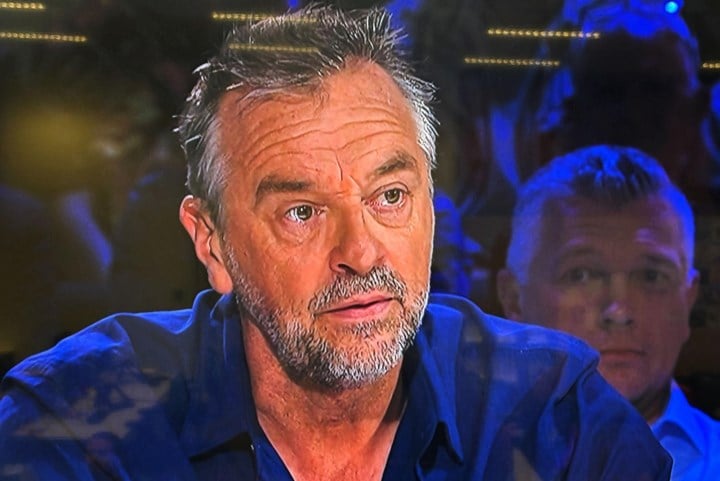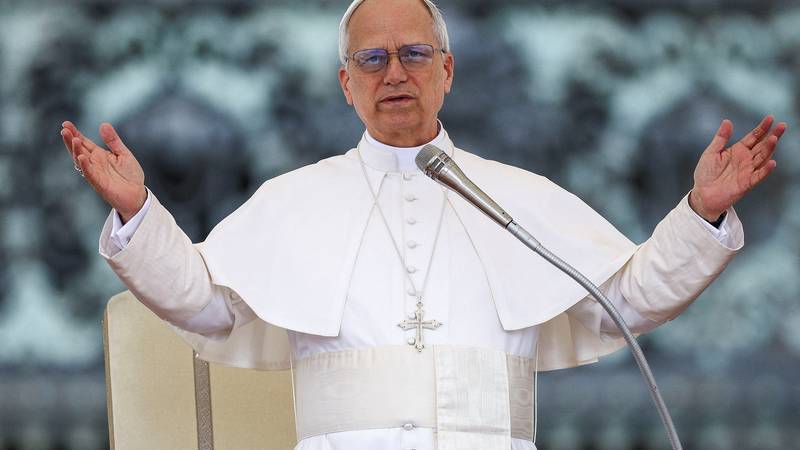Why the National Council wants the security pact with the EU

It is about the defense of Switzerland – and 150 billion euros: that’s why the parliament wants the security pact with the EU
The new contracts with the EU have not yet been signed, the next site chamber should already be tackled: a safety agreement with Brussels. It is likely to be one of Defense Minister Pfister’s most important dossiers. And very soon.
Middle Federal Councilor Martin Pfister is around 50 days in office. On Monday, he wants to take a first inventory in Bure weapons place and present his future priorities in front of the media. The relationship with the EU should also be discussed. Not only about the new bilateral contracts that Pfister is well known. But also about new negotiations with Brussels in the sensitive area of security policy. So in Pfister’s area of responsibility.
It is about an agreement that Switzerland is supposed to tie more closer to the EU in times of geopolitical turbulence.
Under the impression of US President Donald Trump’s transatlantic shock policy, the National Council, with 115 against 66 votes in March, asked the Federal Council surprisingly clearly in March to « present concrete steps for security policy cooperation with Europe ».
And in mid -May the security policy commission followed. The Federal Council calls for a mandate for a so-called « security and defense agreement » to work out with the EU. In the motion brought in by SP National Councilor Fabian Molina, it is explicitly said that it is about « reducing the dependency on third countries, especially the USA » and making a contribution to the « building of European security architecture ».
In addition to service to Europe, it is all about tangible economic interests in Switzerland.
First, the army wants to upgrade. And because all states want this at the moment, the federal government not only risks to pay a higher price. But also to have to hire themselves at the back of the arms manufacturers as a comparatively small customer. Instead of single-handedly, it would be cheaper to get into joint procurement projects from EU countries-as part of a large shopping community.
Second, it is about ensuring the survival of the Swiss armaments industry. A domestic market for defense is created in Europe. For the Swiss arms forge, the most non -discriminatory access to this market is central. As a reminder: Last year, 80 percent of Swiss war material exports went to Europe.
Brussels puts his billion program in force on Tuesday
Specifically, it is now a matter of securing access to the « Safe » armaments program that the EU countries have been filled with 150 billion euros.
However, Brussels demands a corresponding security and defense agreement from third countries. Great Britain has already agreed with the EU Commission and should be the first to associate. Other countries like Canada are high pressure to promote the talks. Because time is pushing – but the debate is just beginning in Switzerland.
The 150-billion-EU program Safe will definitely be put into force this Tuesday by the EU Council of Ministers. In six months, the first funds could flow for several EU countries. Common tank orders, the development of a new weapon system, the establishment of ammunition factories – if Switzerland is there, it can benefit both as a buyer and as a supplier. If it is not there, local companies can deliver components of a maximum of 35 percent of the total value of a project – if at all.
This would be an obstacle, especially for companies that manufacture so-called “dual-use” goods, i.e. goods that can be used for both civilian and military purposes. Switzerland has great potential here. Super -precise nuclear clocks, which are used in modern weapon systems for navigation and sensor control, are just one of many examples.
However, it is still unclear whether the Federal Council is receiving the security and defense pact with the EU. The decision -making process has not yet taken place, it says in Bern. However, it is said from the federal government involved: « Now the time has come to act. »
After all, after the attack on Russia to Ukraine, the state government already stated in the updated defense policy report in 2022 that it was aiming to expand the cooperation. Since then, a lot has happened under the former Defense Minister Viola Amherd: Switzerland joined two EU projects of the “constant structured cooperation” (Pesco) in the field of military mobility and cyber defense. Switzerland has been participating in the “Sky Shield” initiative for a European rocket defense screen since last autumn.
One thing is clear: the EU would be greeted with a rapprochement between Switzerland in the security area. And as a precaution, the Swiss side emphasizes that it is by no means a agreement that are militarily binding for Switzerland. The neutrality remains untouched.
SVP reports resistance
However, this is controversial. In the event of a closer armor cooperation, the federal government would have to adapt its war material law so that in an emergency, armaments from Swiss production could be passed on to partner states without any problems. Parliament has been arguing about this question since Russia’s attack on Ukraine in March 2022. Depending on the proposal, criticism comes from left – or from the SVP.
In any case, the SVP does not want to know anything about approaching the EU in the security area. It rejected both the statement by the National Council and the corresponding motion in the security policy commission.
« The neutrality is the contribution to peace that Switzerland can offer on the stage of world politics, » said SVP National Councilor Walter Gartmann when he founded his party’s no in the debate in March. « In the event of conflicts in which major powers such as the USA, the EU, NATO, cannot turn the sheet. » It is much more important to “tackle and make the army defensive again”.
Defense Minister Pfister is facing violent security policy debates.








